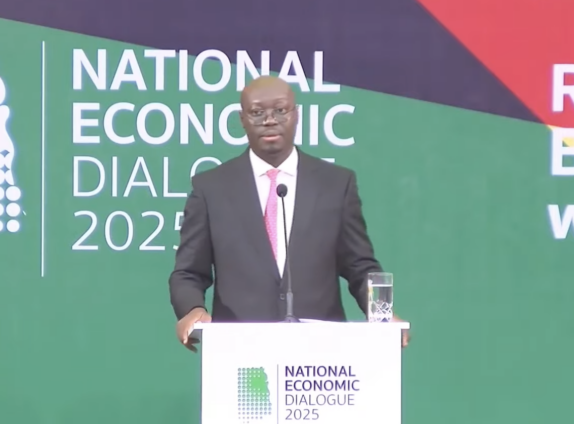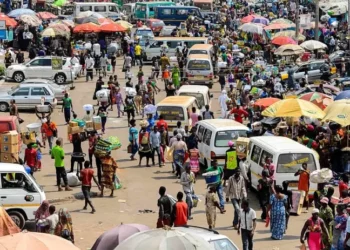Ghana’s economy stands at a crucial turning point, according to the World Bank’s newly released Policy Notes titled “Transforming Ghana in a Generation.”
The report underscores that without bold reforms and a commitment to fiscal discipline, the country risks being trapped in a cycle of recurring financial crises and repeated International Monetary Fund (IMF) bailouts.
The World Bank emphasizes that Ghana has a “unique opportunity” to pursue transformative reforms that could triple per capita income by 2050 and sustain growth above 6.5%. However, achieving this requires breaking away from entrenched governance failures, fiscal indiscipline, and over-reliance on natural resources.
The report highlights Ghana’s long-standing challenge of fiscal mismanagement as a root cause of its economic instability. Over the past decade, the country’s per capita income has stagnated at around $2,200, while poverty continues to affect more than a quarter of the population. Rising deficits and debt culminated in a severe economic crisis in 2022, leading to yet another IMF-supported program.
The World Bank warns that unless Ghana restores fiscal credibility, it risks perpetuating this cycle of debt distress and bailout dependency. Robert Taliercio O’Brien, World Bank Division Director for Ghana, Liberia, and Sierra Leone, stated, “To sustain high growth, Ghana must join other countries that have maintained prolonged periods of economic growth and successfully avoided the middle-income trap by ensuring macroeconomic stability, low inflation, and sustainable public finances.”
Restoring Macroeconomic Stability
According to the Policy Notes, restoring macroeconomic and financial stability is the first pillar of Ghana’s transformation. This means strengthening revenue collection systems, improving expenditure management, and addressing structural inefficiencies in sectors such as energy and cocoa that continuously pose fiscal risks.
The Bank cautions against Ghana’s premature reentry into the Eurobond market, urging policymakers to focus instead on debt sustainability and transparency. Fiscal consolidation, coupled with institutional reforms, is seen as key to rebuilding both investor confidence and public trust.

Beyond fiscal stability, the report emphasizes productivity and job creation as central to long-term transformation. Ghana’s economy, the Bank argues, must diversify into high-productivity sectors, while creating an enabling business environment that attracts domestic and foreign investment.
Equally important is the development of human capital. Strengthening education, healthcare, and social protection systems will build a workforce with the skills necessary to sustain competitiveness in a rapidly evolving global economy. Without this shift, Ghana risks being left behind in the race for industrialization and innovation.
Harnessing Natural Resources Responsibly
The World Bank also draws attention to the need for sustainable management of Ghana’s natural resources. With declining resource revenues and demographic pressures mounting, the country must rethink its dependence on extractives. Instead, investment in agriculture, infrastructure, and climate resilience could foster broad-based and inclusive growth.
By adopting policies that balance exploitation with sustainability, Ghana can ensure that natural resources become a foundation for prosperity rather than a source of vulnerability.
Perhaps most crucially, the Policy Notes call for a renewed focus on governance. The Bank highlights that weak institutions, inefficiency, and corruption have undermined past reform efforts. To build resilience and restore confidence, the government must strengthen accountability, reform the public sector, and enhance transparency in fiscal management.
These reforms, the World Bank insists, are not merely economic but also political, requiring a firm break from entrenched governance failures. Without them, Ghana risks squandering the opportunity for a generational transformation.
READ ALSO: Ghana Joins ECOWAS Push to Revamp 0.5% Import Levy Amid Cash Crunch























